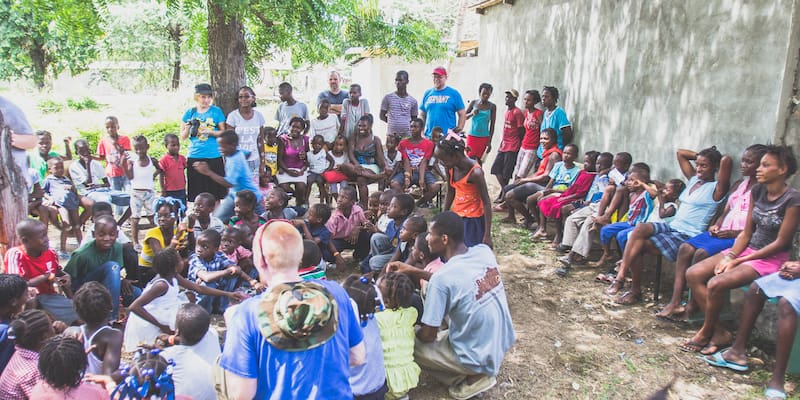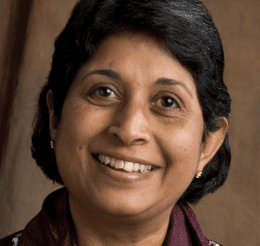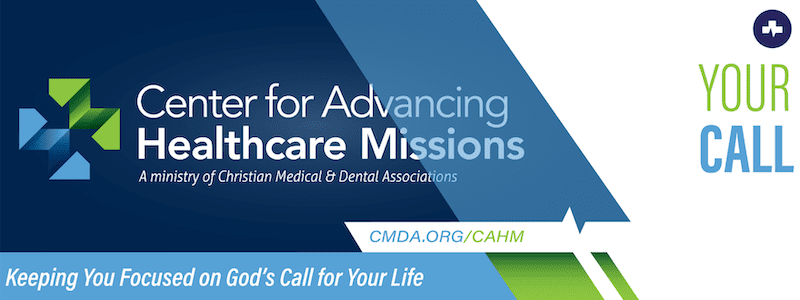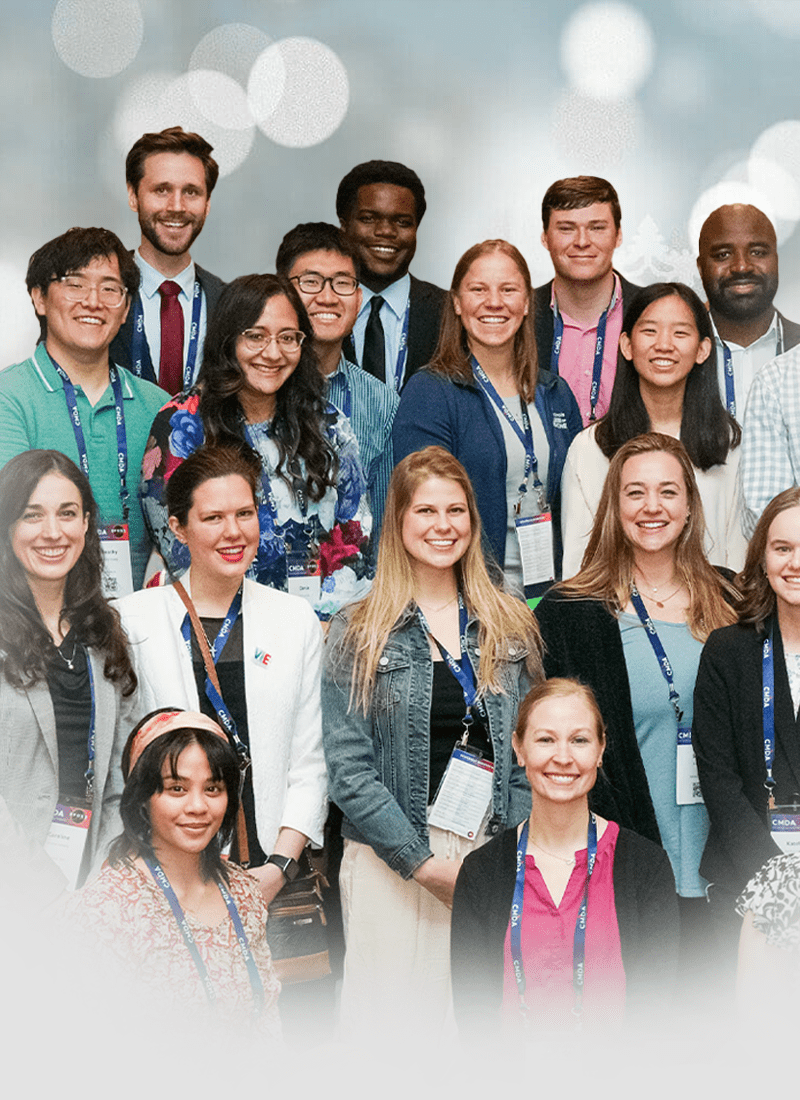
Calling and Discernment
Ann Thyle, MD
August 14, 2024
Calling and Discernment for the Healthcare Missionary
After completing graduate studies in the early 1980s, my husband, Sydney, and I relocated to a mission hospital located at the foothills of the Himalayas in North India. This hospital was one of the 20 establishments operated by the Emmanuel Hospital Association (EHA) in remote rural areas, with a mission to foster “transformation through caring.” We grasped the significance of receiving one call with three main aspects: to be God’s sons and daughters, to become like Christ in servanthood, and to be sent to do good works. However, we were unprepared for the profound suffering we encountered.
The region was afflicted by abject poverty, an oppressive caste system, gender discrimination, child marriages, bride burning and worship practices involving man-made deities, all contributing to widespread suffering. The gap between our perceived capabilities and the demands placed upon us by God’s calling was vast. Naïve and overwhelmed, we found ourselves grappling with responsibilities and pressures beyond our capacity. Trust grew during the unexpected challenges of everyday life, learning to live to please God and develop a deeper communion with Him.
The bustling outpatient clinics provided insights into the diverse communities of the small villages surrounding the hospital. While individuals from the plains often exhibited signs of chronic neglect, those from the mountain tribes appeared to fare better. However, most had limited access to healthcare, relying on local healers dispensing dubious remedies or traditional practices. Despite their circumstances, they all sought solace and compassionate care at the hospital.
Approximately a decade earlier, a few villagers secured employment at the hospital as cooks or gardeners. Despite their lack of formal education, some were trained by the surgeon to serve as surgical assistants. These individuals quickly integrated into the operating room team, demonstrating proficiency comparable to that of individuals trained in prestigious institutions. Inspired by this example, we engaged in initiatives to train nurse anesthetists, ophthalmic technicians and midwives. Hailing from disadvantaged tribal backgrounds, the efficient and steadfast Christ-followers found purpose and worth.
Forced to create solutions in the face of limited resources, improvising became a way of life. A brick on a rope suspended over a metal frame provided skin traction for femur fractures. The antiquated anesthesia machine was used for patients of all ages. X-ray films were pinned on wires to dry outside of the x-ray room. Petroleum jelly was applied to gauze to sterilize before it was used on burn victims. A seamstress sewed, and then patched, green cotton scrub gowns, caps and masks. The carpenter fashioned every piece of broken furniture into splints, crutches or stools. Obedience to God’s call superseded the need for perfect conditions.
During the monsoon season, snakebites were common, requiring prompt identification and treatment. Sometimes, the snake—either dead or alive—would arrive in a plastic bag. Our snake identifier book was instrumental in determining who would receive our meager supply of anti-snake venom. When none was available, we resorted to intubation, and took turns ventilating patients around the clock. It took a decade before the hospital acquired a ventilator.
Additionally, during the rainy season, patients flooded in with ailments such as typhoid, malaria, dengue and hepatitis. We transformed an open-air, tree-lined courtyard into a makeshift ward, utilizing old metal beds retrieved from storage. The branches of the trees served as drip stands, with IV bottles gently swaying in the breeze.
The hospital lacked a blood bank, providing only refrigeration for limited-time storage in sterile glass bottles with rubber stoppers. The nearest blood bank, a three-hour round trip bus ride away, was too prolonged for emergency transfusions. Relatives routinely refused to be donors. They developed mysterious illnesses, or denied family affiliation, or simply ran away. Necessarily, the OR staff became adept at the process of autotransfusion. Our method of filtering collected blood through layers of gauze was crude but effective.
One remarkable initiative was the organization of “eye camps” dating back to 1924. These camps facilitated eye surgeries, primarily for cataracts, in village settings to alleviate transportation challenges. Patients camped in tents, while relatives slept under the stars. Sydney performed around 160 surgeries during each camp. Miraculously, no complications occurred.
Obstetric practices were influenced by village traditions. Deliveries were managed by untrained midwives or mothers-in-law, conducted in isolated huts or cowsheds. Any delay in seeking medical assistance resulted in perilous journeys for moribund mothers during or after childbirth. However, through the efforts of the hospital’s community health teams and training programs for traditional birth attendants, attitudes gradually shifted, leading to a reduction in preventable obstetric complications.
Tragedies took their toll. A displeased, enraged husband would douse his wife in kerosene, setting her clothes alight. One young woman, in pain and brimming with tears, recounted her story to me. My tears mingled with hers as I recorded her “Dying Declaration,” a document admissible in a court of law, forcing her husband to face imprisonment. She knew she was dying, and revenge for her suffering was all she had left. As I bent low to hear her words, she spoke with a faint smile. “This is the first time anyone cried for me. Pray to your God. I know He will take away my suffering.” Her wounded heart found the peace that eluded her all her life.
After 20 years of clinical work, both Sydney and I had additional administrative roles for 13 EHA hospitals. Sydney embraced the job, having previously headed up one hospital. I was ill-equipped, and distraught at losing hours of clinical work that provided an invaluable connection to people. It also meant nerve-wracking train travel, alone, to visit far-flung hospitals. I felt increasingly ineffective while God seemed distant and silent.
And yet, within this spiritual dryness, I was gifted with a discovery. Within the hidden crannies of villages, socially alienated people—those considered “unclean”— were enduring unimaginable suffering. Cancer patients with maggot-filled wounds, individuals with advanced organ failures, neurological deficits, and congenital abnormalities. Despite challenging national regulations, we secured funding, trained teams and obtained opioid licenses, leading to the establishment of palliative care services in all EHA hospitals. These teams now provide holistic care, including cleaning homes, supplying food, initiating income-generating projects and offering transformative spiritual support.
Some of God’s biggest moves come after a period of spiritual dryness. AW Tozer wrote, “Your thoughts decide your heart’s climate. When purified by the blood of Jesus, thoughts of mercy, kindness and charity contribute to a lifelong habit of spiritual receptivity and response. It is a gift of God to be cultivated.”
To be, to become, and to be sent, exposed our need for God to take the lead in our lives, to return repeatedly to the basics of our faith, to His character and promises. “Christ in us, the hope of glory.”
About the Author
 Ann Thyle worked with the Emmanuel Hospital Association (EHA) from 1982-2016. Ann is an anaesthesiologist with additional training in obstetrics/gynecology and palliative medicine. She developed the reproductive and child health course for EHA and initiated palliative care services. She is married to Sydney, an ophthalmologist. Together, they worked for 22 years in two hospitals before taking on wider roles involving extensive travel to all EHA hospitals. They have three children and four grandchildren and are currently based in Bangalore, south India.
Ann Thyle worked with the Emmanuel Hospital Association (EHA) from 1982-2016. Ann is an anaesthesiologist with additional training in obstetrics/gynecology and palliative medicine. She developed the reproductive and child health course for EHA and initiated palliative care services. She is married to Sydney, an ophthalmologist. Together, they worked for 22 years in two hospitals before taking on wider roles involving extensive travel to all EHA hospitals. They have three children and four grandchildren and are currently based in Bangalore, south India.
“In alert expectancy such as this, we’re never left feeling shortchanged. Quite the contrary—we can’t round up enough containers to hold everything God generously pours into our lives through the Holy Spirit” (Romans 5:4-5, MSG)
Read More“And these are but the outer fringe of his works; how faint the whisper we hear of him! Who then can understand the thunder of his power” (Job 26:14)?
Read More“Not that I was ever in need, for I have learned how to be content with whatever I have. I know how to live on almost nothing or with everything. I have learned the secret of living in every situation, whether it is with a full stomach or empty, with plenty or little. For I can do everything through Christ, who gives me strength” (Philippians 4:11-13, NLT).
Read More“Not that I was ever in need, for I have learned how to be content with whatever I have. I know how to live on almost nothing or with everything. I have learned the secret of living in every situation, whether it is with a full stomach or empty, with plenty or little. For I can do everything through Christ, who gives me strength” (Philippians 4:11-13, NLT).
Read MoreConsultBridge is a non-profit platform connecting frontline healthcare missionaries with specialist doctors for virtual consultations. By providing timely medical expertise in underserved regions, it empowers missionaries to deliver better patient care while specialists contribute their skills from afar.
Read MoreA physician’s journey from Ethiopia’s famine relief to medical teaching in China reflects resilience, faith and service. Through life-saving care, gospel outreach and mentorship, their story highlights enduring hope and the transformative power of compassionate healthcare and ministry
Read MoreIn a tech-saturated world, Dr. Ruth Lindberg explores how constant digital distractions can pull us away from a deeper relationship with Jesus. She offers practical tips for reducing screen time, refocusing our attention and embracing the peace and presence of God.
Read MoreToday, the Tenwek Community Health and Development (TCHD) program little resembles the original program begun 40 years ago. That is a good thing! The goals of the program haven’t changed, but the strategies certainly have evolved.
Read MoreWhen we decided to attempt a public health campaign for pediatric pedestrian safety, we opted for an emphasis on community and solidarity, believing these cultural values were more likely to anchor the message beyond one cycle of road traffic accidents.
Read MoreJust months before the end of our four-year term in Nepal, a young mother died at our hospital. Though our staff did nothing wrong and worked tirelessly to save her, those local leaders took advantage of the situation to foment hostility. Before we knew it, a volatile, angry mob was at our door, making demands and threats.
Read More

